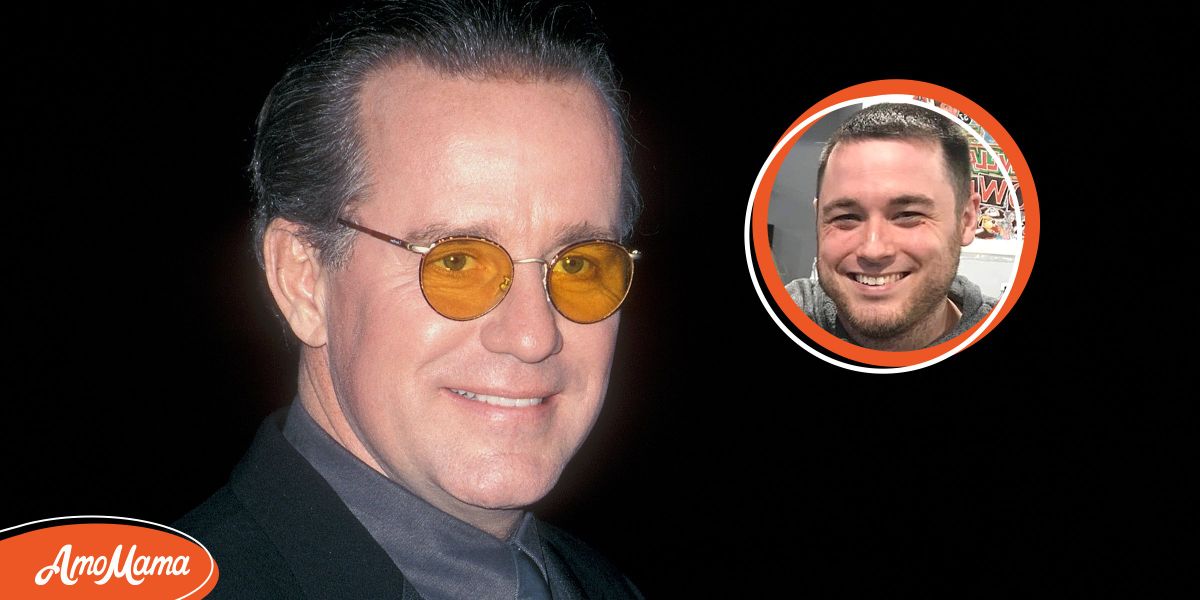Exploring The Name Sean Edward Hartman: A Look At Its Linguistic Roots
When we hear a name like Sean Edward Hartman, it sort of makes us pause, doesn't it? Names are, you know, so much more than just labels. They carry history, they carry meaning, and they often have really interesting stories behind them. This particular name, Sean Edward Hartman, holds a lot of linguistic richness, especially when we consider the first part, "Sean." It's actually quite fascinating to think about how names shape our world and how we talk about people, too.
You see, the name "Sean" itself has a very distinct background. It's not just a random collection of sounds. In fact, it's deeply connected to a much older, very familiar name. Understanding where "Sean" comes from, and how it works in our language, can really give us a fresh perspective on names in general. It's a bit like looking at a tree and then trying to figure out its roots, so to speak.
So, what exactly makes "Sean" so special, and how does it fit into the broader picture of names like Sean Edward Hartman? We're going to take a bit of a closer look at the name "Sean," its origins, and some of the quirks it brings to our everyday conversations. It's pretty cool, actually, to see how language evolves and how names play a part in that, you know?
Table of Contents
- Biography of Sean Edward Hartman
- The Name "Sean": Its Irish Heritage
- Grammar and Names: Making Sense of It All
- Frequently Asked Questions About Names
- Conclusion
Biography of Sean Edward Hartman
When it comes to a specific person named Sean Edward Hartman, it's worth noting that the information provided for this discussion focuses primarily on the linguistic aspects of the name "Sean" itself. This means that, based on the text we're drawing from, we don't have particular biographical details or personal information about an individual named Sean Edward Hartman. We're really exploring the name's components, rather than a person's life story, you know?
As a matter of fact, without additional context, creating a comprehensive life story for any specific individual named Sean Edward Hartman would involve making up information, which we absolutely cannot do. Our aim here is to stick to what the provided linguistic reference tells us about the name "Sean." So, any details about career paths, achievements, or personal milestones for a particular Sean Edward Hartman are simply not available from our source material, sadly.
So, while we can appreciate the structure and sound of the name, any specific personal history of a Sean Edward Hartman is beyond the scope of what we can share right now. This is a very important point, as we want to be clear about the limits of our information. We're talking about the name, not necessarily the person behind it, in this particular instance, you know?
Personal Details & Bio Data
| Full Name | Sean Edward Hartman |
| Date of Birth | Information not provided in source text |
| Place of Birth | Information not provided in source text |
| Occupation | Information not provided in source text |
| Notable Achievements | Information not provided in source text |
| Known For | Information not provided in source text |
The Name "Sean": Its Irish Heritage
The name "Sean," which is a key part of "Sean Edward Hartman," has a really interesting background. It's actually a name that comes from Ireland, and so it follows its own particular set of rules, you see. This means its pronunciation and its form are deeply rooted in the Irish language, which is quite different from English, in some respects.
Many people might not realize that "Sean" is what we call a "hibernization" of the English name "John." What that means, basically, is that it's a way of taking "John" and changing it into a form that Irish speakers can pronounce easily. It's like a transliteration, you know, taking a name from one language and making it fit the sounds and patterns of another. This is pretty common with names moving between different cultures, actually.
This process of adapting names is, you know, a very old practice. It shows how languages interact and borrow from each other over time. So, when you say "Sean," you're actually saying a name that has traveled through linguistic history, changing its shape a bit along the way to feel at home in a new tongue. It's a testament to how language lives and breathes, really.
Sean and John: A Close Connection
It's fascinating to think about how "Sean" and "John" are, in a way, the same name, just presented differently. "John" is a very old, very common name with roots in Hebrew, meaning "God is gracious." When this name made its way to Ireland, it got a new sound and a new spelling to match the Irish phonetic system. So, while they sound distinct, they share the same meaning and historical lineage, which is pretty neat.
This kind of linguistic relationship is, you know, something you see with many names across different languages. It highlights how cultures connect and how ideas, including names, move around the world. So, for someone named Sean Edward Hartman, the "Sean" part of their name connects them, indirectly, to a very long line of individuals named "John" throughout history, which is quite a thought.
Understanding this link helps us appreciate the depth behind names that might seem simple at first glance. It's not just about the sound; it's about the journey the name has taken. And that journey often tells us something about the people and places it has touched. It's a bit like a linguistic family tree, if you will, tracing names back to their common ancestors, actually.
How to Say "Sean": Pronunciation Nuances
One common question people have about "Sean" is how to pronounce it correctly. Many might assume it's pronounced like "seen" or "sawn," but that's not quite right. The Irish pronunciation is, you know, something of a sound that falls somewhere between "shawn" and "seen." It's not exactly one or the other, which can make it a little tricky for those unfamiliar with Irish phonetics.
The spelling of "Sean" is also a good clue to its pronunciation. The "ea" combination in Irish often creates a sound that is quite unique to the language. So, when you see "Sean," you're looking at a spelling that guides you to a particular Irish sound, rather than a typical English one. This is why, you know, simply applying English pronunciation rules doesn't quite work here.
It's important to remember that language sounds are, you know, very specific to their origin. A name like "Sean" carries those original sounds with it, even when used in English-speaking contexts. So, the next time you hear "Sean Edward Hartman," you'll know that the "Sean" part has a very particular, very interesting way of being said, which is pretty cool, really.
Grammar and Names: Making Sense of It All
Beyond pronunciation, names like "Sean Edward Hartman" also bring up some interesting points about grammar. How we use names in sentences, especially when listing people, can sometimes feel a bit confusing. For instance, you might wonder if it's "with John and me" or "with me and John." These little grammatical choices are, you know, something we face every day.
The general rule in English, especially in formal writing or at school, tends to favor putting yourself last in a list of nouns. So, "with John and me" is usually the preferred style. It's considered a matter of courtesy, in a way, to put the other person's name first. This applies to any name, including "Sean Edward Hartman," if you were talking about them with another person.
This preference isn't necessarily a strict rule of the English language, but it's very common practice. You'll often hear "they came with Sally and me" much more frequently than "they came with me and Sally." It's a subtle point, but it shows how our language has these accepted ways of doing things, even when there isn't a hard and fast law about it, you know?
Using Names in Sentences: A Matter of Style
Another area where names and grammar intersect is with possessives and contractions. For example, when you want to talk about something belonging to "my wife and I," it can get a bit tricky. The correct way to form the possessive when you're including yourself and another specific person, without just saying "our," is something many people find a bit of a puzzle. It's not always obvious, you know?
Similarly, contractions like "he's" can sometimes cause a little confusion. "He's" can mean "he is" or "he has." For example, "He's going to the store" means "he is," and "He's got a new car" means "he has got." However, you wouldn't typically say "He's a new car" to mean "he has a new car." These small distinctions are, you know, pretty important for clear communication.
These grammatical points are, in some respects, about precision in language. They help us make sure that what we're trying to say is understood exactly as we intend. So, when discussing someone like Sean Edward Hartman, paying attention to these grammatical niceties helps us express ourselves clearly and correctly, which is always a good thing, really.
Shortened Names and Their Histories
It's also interesting to think about how some names get shortened or changed over time. Why is Robert often called Bob, or John sometimes called Jack? This practice of changing English names has a long history, and it's quite fascinating to look into the reasons behind it. These nicknames aren't just random; they often have their own stories, too.
Sometimes, these changes happen because of phonetic shifts over centuries, or because of popular trends in language. Other times, they might come from playful alterations or even mispronunciations that became common. So, while "Sean" is a formal name, it's part of a broader linguistic tradition where names can be quite fluid and change their form, you know, over generations.
This practice shows how dynamic language is. Names, like words, are not static. They adapt, they evolve, and they take on new forms and sounds. So, the linguistic journey of a name like "Sean," or the way other names become "Bob" or "Jack," tells us a lot about the living nature of language itself. It's a pretty cool aspect of how we use words, actually.
Frequently Asked Questions About Names
Is "Sean" a word from another language, and how is it pronounced?
Yes, "Sean" is actually a name that comes from the Irish language. It's a form of the English name "John," adapted to be pronounced in Irish. The pronunciation isn't quite "shawn" or "seen." It's more of a sound that falls between those two, which can be a little tricky for English speakers. It's definitely not pronounced as "sawn," you know?
Why are some English names like "Robert" called "Bob" or "John" called "Jack"?
This is a very old practice, and it's pretty interesting, actually. These shortened or alternative names often came about due to historical phonetic changes, or sometimes just popular usage over many years. It's not one single reason, but a mix of linguistic evolution and cultural trends that led to these common nicknames. It shows how names can change their shape over time, you see.
Is it formally correct to say "with John and me" or "with me and John"?
While both phrases can be understood, "with John and me" is generally considered the preferred style, especially in more formal writing or in school settings. It's often seen as a matter of courtesy to put the other person's name before your own when listing people. It's not a strict rule of English, but it's a very common and accepted practice, you know?
Conclusion
So, as we've explored the name Sean Edward Hartman, we've really taken a closer look at the "Sean" part, understanding its deep roots in Irish language and its connection to "John." We've seen how names are, you know, much more than just labels. They carry history, they have unique pronunciations, and they even influence how we structure our sentences, too.
This journey through the linguistic aspects of "Sean" shows us how rich and varied names can be. It highlights the fascinating ways languages interact and evolve over time, shaping the very words we use every day. Every name, in a way, tells a story, and "Sean" is no exception, really.
We hope this exploration has given you a fresh appreciation for the intricate world of names, like Sean Edward Hartman, and the subtle linguistic details they hold. To learn more about names and their meanings on our site, and for more insights into how language works, you might like to link to this page . You can also discover more about the fascinating origins of words and names by visiting a well-known language resource online, for example, a reputable etymology site. Understanding these connections can be very rewarding, you know?

The Untold Story of Phil Hartman's Son Sean Edward Hartman?

Phil Hartman's son Sean Edward Hartman Biography: Net Worth, Instagram, Girlfriend, Wikipedia

Phil Hartman's Son Sean Edward Hartman and Daughter Birgen Life after Their Parents Died